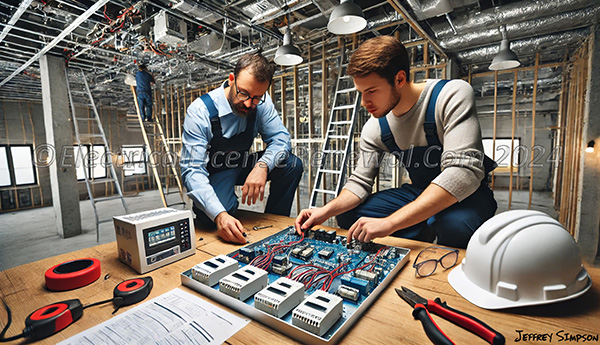Installer Training Programs.

Comprehensive training programs for installers are essential to ensure the proper installation, maintenance, and operation of fire and security alarm systems. These programs provide installers with the knowledge and skills needed to handle various aspects of alarm system installation, from initial setup to ongoing maintenance and troubleshooting.
Some states require specific credentialing or licensing to make sure those installing alarm systems are properly qualified. NFPA 72 Chapter 10 states the following:
10.5.2.2 State or local licensure regulations shall be followed to determine qualified personnel.
10.5.2.3 Personnel shall provide documentation of their qualification by one or more of the following:
(1) Registration, licensing, or certification by a state or local authority
(2) Certification by an organization acceptable to the authority having jurisdiction
(3) Manufacturer's certification for the specific type and brand of system provided
10.5.2.4 System installation trainees shall be under the supervision of a qualified system installer.
10.5.2.5 The system installer shall provide evidence of their qualifications and/or certifications when requested by the authority having jurisdiction.
Training programs typically cover a wide range of topics, including system design principles, installation best practices, wiring and connectivity, sensor placement, and system integration. Installers learn how to follow manufacturer guidelines and industry standards, such as NFPA 72, to ensure that systems are installed correctly and function reliably.
Hands-on training is a critical component of installer programs. Practical exercises allow installers to work with real equipment, gaining experience in installing sensors, configuring control panels, and testing system components. This hands-on experience helps installers develop the technical skills needed to perform their job effectively.
Advanced training programs may also cover specialized topics, such as integrating alarm systems with other building systems, implementing wireless technologies, and using AI and analytics for predictive maintenance. These advanced topics help installers stay up-to-date with the latest technologies and industry trends.
Certification is often a part of installer training programs. Certification ensures that installers have met specific standards of knowledge and competence. Many industry organizations and manufacturers offer certification programs that validate an installer's expertise and enhance their professional credentials.
Continuing education is also important for installers. Regular training updates help installers stay current with changes in codes and standards, new technologies, and best practices. This ongoing education ensures that installers can continue to provide high-quality service and maintain the reliability of alarm systems.
By participating in comprehensive training programs, installers can ensure they are well-equipped to handle the complexities of fire and security alarm systems, providing reliable protection and minimizing the risk of false alarms.